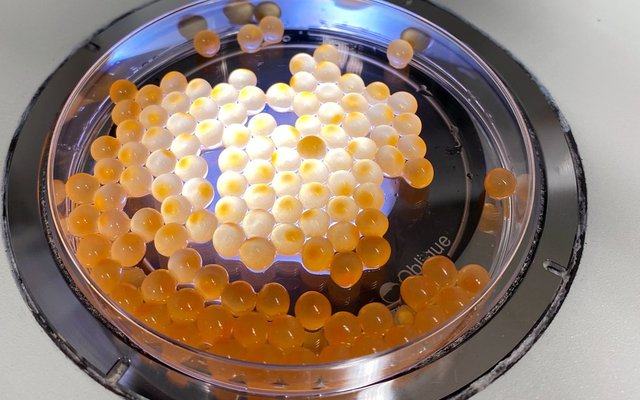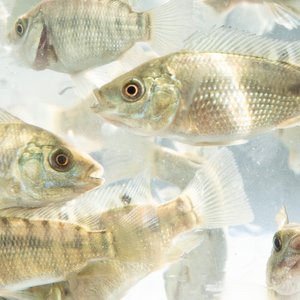Delayed spawning can lead to broodstock starvation and early spawning can lead to larvae receiving too little nutrition. These are the findings of a new study by the Norwegian Institute of Marine Research that assessed how changing the spawning time in salmon affects broodstock and its progeny.
Salmon spawn naturally in late autumn. To ensure access to fish throughout the year, fish farmers have developed methods for spawning earlier or later than normal, by adjusting conditions such as light, temperature and time of transfer of broodstock to freshwater.
In this study, researchers assessed how such a shift in spawning affects the health of salmon broodstock and its progeny by examining the nutritional status of both broodstock and salmon eggs at different spawning times.
Late spawning, hungry mother
Researchers had three trial groups of salmon: natural spawned, salmon spawned two months earlier and salmon spawned two months later. They found different levels of nutrients between the groups.
In salmon spawning later, muscle protein from the mother was transferred to the eggs which was good for the eggs but can lead to broodstock starvation and it can be an issue in terms of welfare. “At the same time, as the egg received more nutrients, they also showed less capacity to handle stress, and also had higher levels of nitrogen-containing waste products that must be excreted,” said researcher Kaja Skjærven.
Early spawning, delayed growth
The situation was the opposite when the fish spawned early. At that time, the nutritional status of the mother was good, but the egg did not get all the nutrients it needed. “Vitamin B, in particular, was lower in the egg that spawned early. We already know that vitamin B can affect the growth from the embryo stage to adult fish,” Skjærven explained.
Need to adapt the feed
Broodstock were fed with the same diet for all the tested groups and researchers suggest that the diet should be adjusted when changing the spawning period to ensure a good nutritional status of both salmon broodstock and eggs.
Check out the study here.













